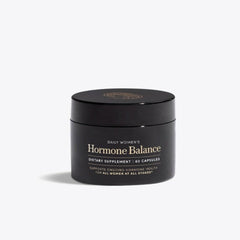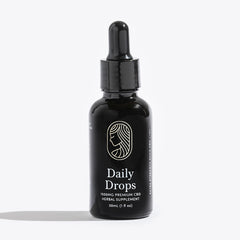This article was written by Dr. Jessica Hehmeyer, DC, MS, LDN, CNS. Dr. Hehmeyer is a Functional Medicine clinician through her firm Well-Empowered LLC. On a shared mission to introduce more women to functional wellness products and change philosophies, she is a frequent contributor and thought partner to Equilibria.
STRESS.
Your heart rate may have increased just reading the word. But what is stress, and what is it that makes us feel stressed out?
 Typically, we think of stress as emotional overwhelm. While there certainly is truth in that, stress is much more – which is good news, because when you know what your unique stressors are, you have the opportunity to reduce your chronic stress load.
Typically, we think of stress as emotional overwhelm. While there certainly is truth in that, stress is much more – which is good news, because when you know what your unique stressors are, you have the opportunity to reduce your chronic stress load.
What is stress?
Stress is the psychological and physiological response to stressors. Stressors can be categorized as experiential and biological.
Experiential Stressors
 Experiential stressors include emotional stressors such as the experience of overwhelm, self-aggression or sustained anger, fear or loneliness. Imagine driving in traffic or waiting in line when you’re running late – these are everyday emotional stressors.
Experiential stressors include emotional stressors such as the experience of overwhelm, self-aggression or sustained anger, fear or loneliness. Imagine driving in traffic or waiting in line when you’re running late – these are everyday emotional stressors.
Biological Stressors
 Biological stressors include physiological stressors such as blood sugar instability, insufficient sleep, under eating or overeating, nutrient deficiencies, and excess toxins such as alcohol, inflammation and infections. This type of stressor also include physical stressors such as movement in excess, insufficient movement or injuries.
Biological stressors include physiological stressors such as blood sugar instability, insufficient sleep, under eating or overeating, nutrient deficiencies, and excess toxins such as alcohol, inflammation and infections. This type of stressor also include physical stressors such as movement in excess, insufficient movement or injuries.
In its stress response (i.e what happens physiologically), your body does not differentiate between running from a bear, rush hour traffic or insufficient sleep given by a late night social media binge.
What exactly happens in my body when I’m stressed?
Our stress response is often referred to as our “fight or flight”, or sympathetic response. Engagement of our stress response produces a sense of agitation that readies you to do something (act) or say something (to yourself or to others). If you are someone whose internal dialogue is particularly critical or who has a tendency towards bursts of anger, you may find a few gems in these stress-learnings that are nothing short of life-altering when practiced over time.
Now let’s meet the two key players in our stress response: cortisol and epinephrine.
Cortisol
Your body – and more specifically, your adrenal glands – produces cortisol, our primary stress hormone. Cortisol is not necessarily “bad” – in fact, we need cortisol to stay alive. We feel our best when cortisol is regularly in its sweet spot, the Goldilocks zone – neither too high nor too low. In this modern era of stressors aplenty, the problem occurs when we perpetually have our foot on the cortisol-gas. During periods of prolonged stress, our body will initially rise to the occasion and ramp up cortisol production, but if demands for cortisol continue over a long period of time, the body’s ability to keep up those demands will be compromised.
Epinephrine (adrenaline)
Your adrenal glands also produce epinephrine, which is both a hormone and a neurotransmitter. Epinephrine coordinates with cortisol in activating certain systems (cardiovascular, musculoskeletal – so that you can get ready to run from the bear!) and dims down other systems (digestive tract, primary sex organs). If you think of your own experience, this all makes sense – how sexy did you feel the last time you were running late for an important meeting?
What are the consequences of stress?
 The more precise question we want to answer is what are the consequences of chronically elevated stress? Well, we are designed to experience short term stress and rebound quickly from it. In fact, brief stress engages our immune system and is one of the ways we fight infections.That being said, we are not designed to function at our best with extended periods of very high stress levels. A chronically engaged stress response (months or years) sets the stage for a whole host of health problems, ones that I really, really would like you to avoid!
The more precise question we want to answer is what are the consequences of chronically elevated stress? Well, we are designed to experience short term stress and rebound quickly from it. In fact, brief stress engages our immune system and is one of the ways we fight infections.That being said, we are not designed to function at our best with extended periods of very high stress levels. A chronically engaged stress response (months or years) sets the stage for a whole host of health problems, ones that I really, really would like you to avoid!
What health problems are associated with chronic stress?
Whether chronic stress is the result of insomnia, city-living, blood sugar instability or excessive exercise, health problems associated with chronic stress include:
- Anxiety and depression
- Chronic fatigue
- Weight gain
- Chronic pain
- Memory loss/increased risk of dementia
- Decreased focus
- Increased infections
- Decreased libido
- Decreased fertility
- PMS and PMMD
- Irregular menstrual cycles
- Hot flashes and worsened perimenopausal symptoms
- Worsening of asthma
- Digestive distress, ie constipation, diarrhea, GERD/acid reflux and bloating
- Insomnia and everything that goes with it
Can we measure our stress levels?
 Absolutely – measuring both stress and stressors is foundational to taking a targeted, data-driven approach to your healing journey. Physiological stressors such as inflammation, nutrient deficiencies and blood sugar can be measured through standard lab tests, and stress levels are assessed through gathering information on your adrenal function, more specifically the amount of cortisol your adrenals are producing at different times of the day. There are two reliable tests for getting this information – one includes saliva collection at four specific times throughout the day, and the other includes urinary collections at four specific times throughout the day. Selecting the right test for you is best done with the guidance of a skilled functional medicine physician.
Absolutely – measuring both stress and stressors is foundational to taking a targeted, data-driven approach to your healing journey. Physiological stressors such as inflammation, nutrient deficiencies and blood sugar can be measured through standard lab tests, and stress levels are assessed through gathering information on your adrenal function, more specifically the amount of cortisol your adrenals are producing at different times of the day. There are two reliable tests for getting this information – one includes saliva collection at four specific times throughout the day, and the other includes urinary collections at four specific times throughout the day. Selecting the right test for you is best done with the guidance of a skilled functional medicine physician.
That being said, not everyone has the interest or the means to complete testing, and there are many things you can do to support a healthy stress response even without completing tests.
What can we do about stress?
 There are many things we can do to reduce our stressors, rebalance our stress response, and improve our stress resilience (our ability to regain our happy medium after moments or periods of increased stress). But the best place to start is where you are. As you learn about possible ways you can reduce your stress levels, I invite you to commit wholeheartedly to just one or two new items. After you have mastered those, revisit this list and find your next best steps on your journey.
There are many things we can do to reduce our stressors, rebalance our stress response, and improve our stress resilience (our ability to regain our happy medium after moments or periods of increased stress). But the best place to start is where you are. As you learn about possible ways you can reduce your stress levels, I invite you to commit wholeheartedly to just one or two new items. After you have mastered those, revisit this list and find your next best steps on your journey.
Remove the stressors you’re able to remove.
This may include beginning or refining sleep hygiene practices, increasing your daily step count, or working with a health professional to identify unknown stressors such as blood sugar instability, excess inflammation or nutrient deficiencies.
Build your stress resilience by nurturing your body, mind and heart.
Body
- Elevate body fuel with nutrient dense foods that stabilize your blood sugar and support your adrenals.
- Participate in movement and exercise that are an expression of self-love.
Mind
- Cultivate grounding habits to mitigate “monkey mind”and reduce habitual rumination. This might include simple breath work, meditation, counseling, listening to relaxing music, reading a book or learning more about how your marvelous mind works, to name a few.
Heart
- Create rituals of daily delights. From taking a moment to be wow’d by nature to savoring a cup of tea to cuddling with a treasured pet, honoring and soaking up daily delights builds your resilience.
- Create time to be gently with yourself and time to be joyfully with others. A tree that is equally rooted and flexible is more able to weather storms. Being connected to our own goodness and the goodness of others is among the magic that makes this possible.
Supplement to support your stress response.
The best supplementation plan is designed based on your body’s needs and your unique stressors. Working with a skilled functional medicine physician, such as those found in the Institute of Functional Medicine Certified Practitioner directory, is a great place to start. I recommend interviewing potential providers to ensure you feel they are the best fit for you and your needs. That being said, yes, there are supplements known to rebalance your stress response, helping you navigate high stress times. A few of my favorites include…

- Magnesium before bed to support restful sleep. Magnesium is also one of the first nutrients depleted in times of high stress.
- B vitamins and vitamin C – both play an important role in healthy adrenal function.
- CBD products before bed and/or throughout the day to rebalance the stress response.
- L-theanine, a relaxing amino acid taken before bedtime and during the day when stressors are extra high.
- *Adaptogenic herbs such as ashwagandha, rhodiola and schisandra.
- *Adaptogenic mushrooms such as cordyceps or reishi which may support your stress resilience.
* Adaptogens are substances that “grease the feedback loop” that governs the orchestra of physiological communication in your body. Adaptogens do not add hormones to your body but may help your body work better, raising cortisol levels when they are low and lowering cortisol levels when they are high. Certain adaptogens are more specific to the adrenals while others are more specific to sex hormones or brain function.
As with any supplement or medication, consulting a qualified medical professional before beginning is advised for your safety and to ensure you are taking it (dose, timing, frequency) based on your body’s needs.
I hope you have found these stress learnings a contribution to you and your journey. When you feel your best and look your best, you can be your best- and that is my wish for you!
* This article and the ideas herein are the intellectual property of Dr. Jessica Hehmeyer dba Well-Empowered.
* This article does not constitute medical advice. It is intended for informational purposes only. It is not a substitute for professional medical advice, diagnosis or treatment. Do not ignore professional medical advice or seeking treatment because of information contained in this article. If you think you may have a medical emergency, immediately call your doctor or dial 911.



